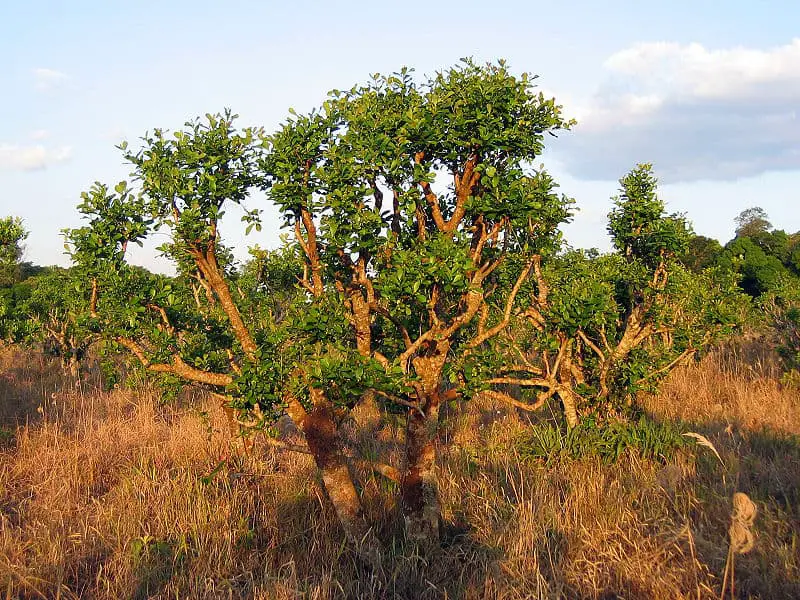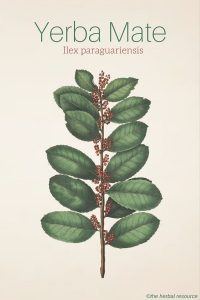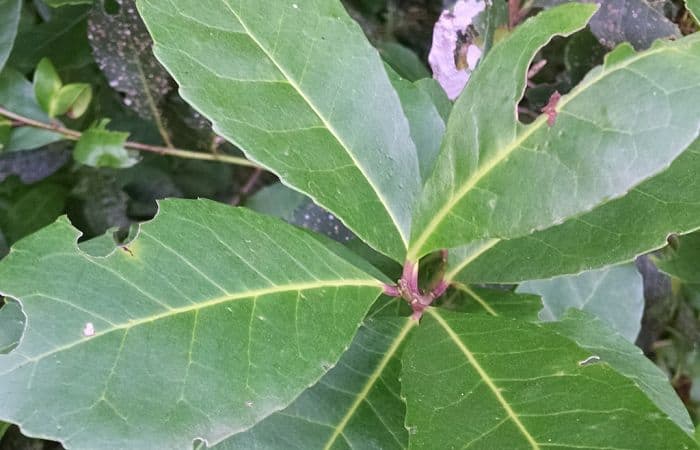Botanical Name: Ilex paraguariensis.
Other Common Names: Yerba maté, maté, erva mate, erveira, Paraguay cayi, Paraguay tea, South American holly, matéteestrauch, St. Bartholomew’s tea, Jesuit’s tea, caminú, kali chaye
Habitat: Yerba mate got its humble beginnings with the Guarani Indians in the highlands of Brazil, Paraguay, and Argentina.
When the Spanish explorers came upon these Guarani in the early 16th century this drink intrigued them.
Even though they were not sitting around in tea rooms with pastries and sipping from fine china as was customary in Europe, the resultant effect of drinking the herbal drink was what caught their attention.
The drink seemed to relieve their fatigue and produced a feeling of exhilaration. Later the Jesuits began to cultivate it and spread its influence.
Description: Yerba mate is a small evergreen shrub like plant. It produces small white four-petal flowers with a hint of green and later red berries around 4–6 mm in diameter.
Plant Parts Used: Leaves and stem.
Yerba mate is often prepared by cutting the leaves, and sometimes the stems, and drying them over a fire, resulting in a more smoky flavor, or curing them in boiling water and then baking them off in a pan or oven. The dried leaves are then packaged. They are sold as tea bags or loose.
.

Yerba Mate Health Benefits, Therapeutic Uses and Claims
Yerba mate is not an Australian greeting or a cream substitute for tea (like Coffee Mate for coffee.) It is actually pronounced “Yerba Mat-ay” and is a very healthy herbal drink.
The name comes from the Spanish word “hierba” which was changed to yerba in Argentina and means “grass or herb,” and the word mati which was changed to mate and stands for “cup or gourd.” This gives it the literal translation of “cup herb.” The basis for the name comes from the traditional way of steeping it in and drinking it from a gourd.
Since its beginnings in South America, it has had varied uses worldwide.
It has been used as an anti-depressant, headache relief, rheumatic pain-reliever, allergy reliever, weight loss remedy and an overall body tonic.
Although coffee is a common drink in many countries, and tea replaces it in others, yerba mate is becoming a popular replacement.
It was theorized for a while that mate did not contain caffeine, but recent studies have proven that there is caffeine present in the plant but it is possible that the other chemicals present may soften the effects of the caffeine.
People who drink yerba mate report less of the negative side effects common with caffeine but all of the positive ones.
They have better mental clarity and focus, their energy levels increase and they feel more vitalized. They do not get the jittery feeling often associated with caffeine intake and seldom have the resultant drop off of energy levels when the caffeine effects wear off.
Sleep does not seem to be interrupted with late night consumption either, actually, some users claim their sleep is better regulated when drinking this “Drink of the Gods.”
Some researchers have claimed that yerba mate has all the nutrients required to sustain life. The presence of antioxidants in the drink help to fight those free radicals that have been reported to cause everything from decreased immune function to cancer and blindness.
Dosage and Administration
The traditionalists like to steep the loose tea leaves in a gourd and then sip them through a metal spoon-like straw with a filter on the end, called a bombilla.
In some circles, the cup will be filled with hot (not boiling) water and the host will drink the liquid down before adding water to the leaves again and passing it on, with each subsequent guest doing the same. This can be done 10-12 times without sacrificing the flavor or healthful qualities of the drink.
Potential Side Effects of Yerba Mate
Negative side effects are considered to be limited.
Of course, too much of a good thing can always have negative effects.
Because of the caffeine content, too much mate intake can lead to similar symptoms as overuse of caffeine.
Two to three cups a day may be just the ticket needed to increase mental focus and energy levels.
Thordur Sturluson
Latest posts by Thordur Sturluson (see all)
- What is the Difference Between Hemp and Marijuana? - June 3, 2019

